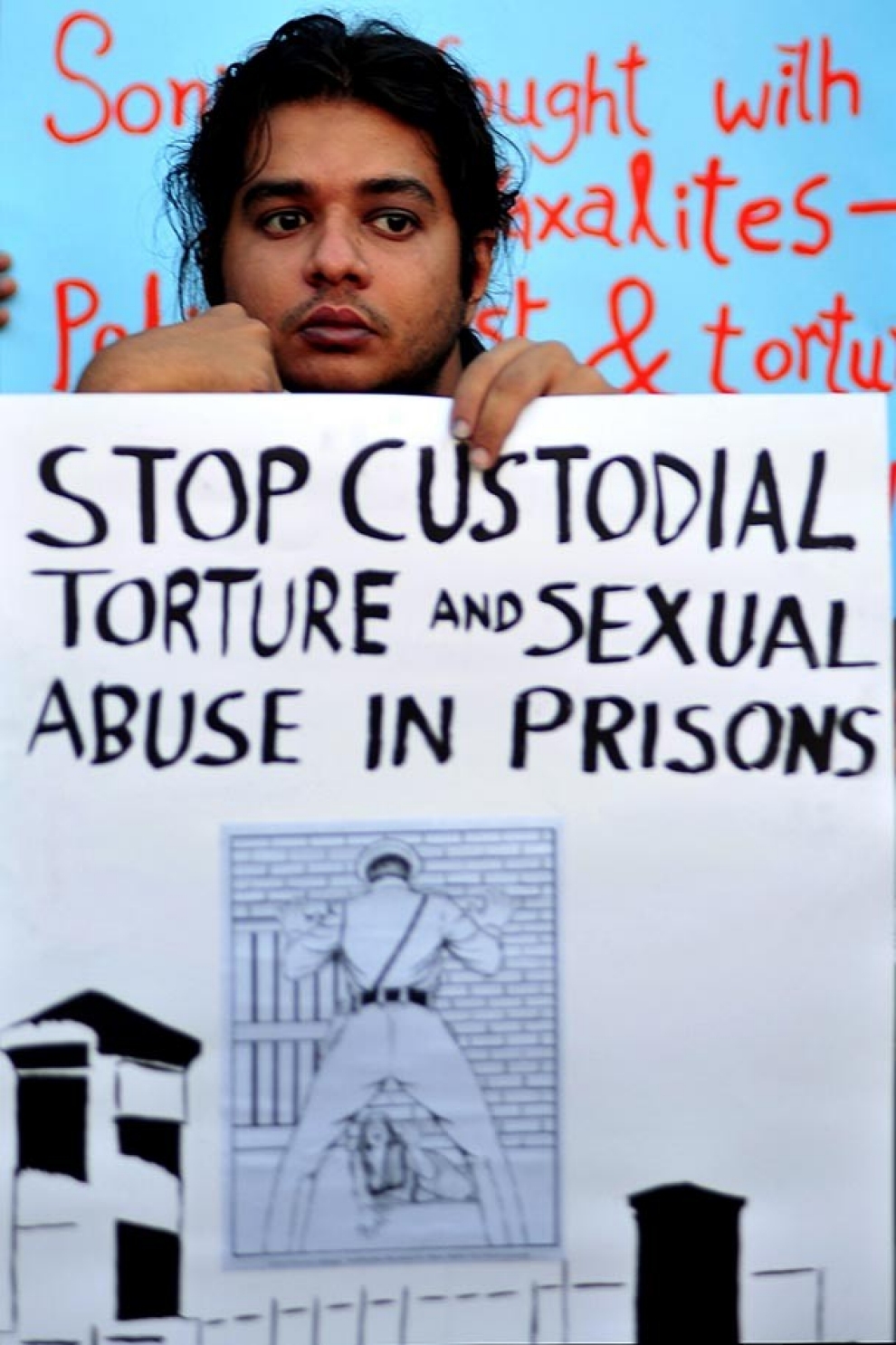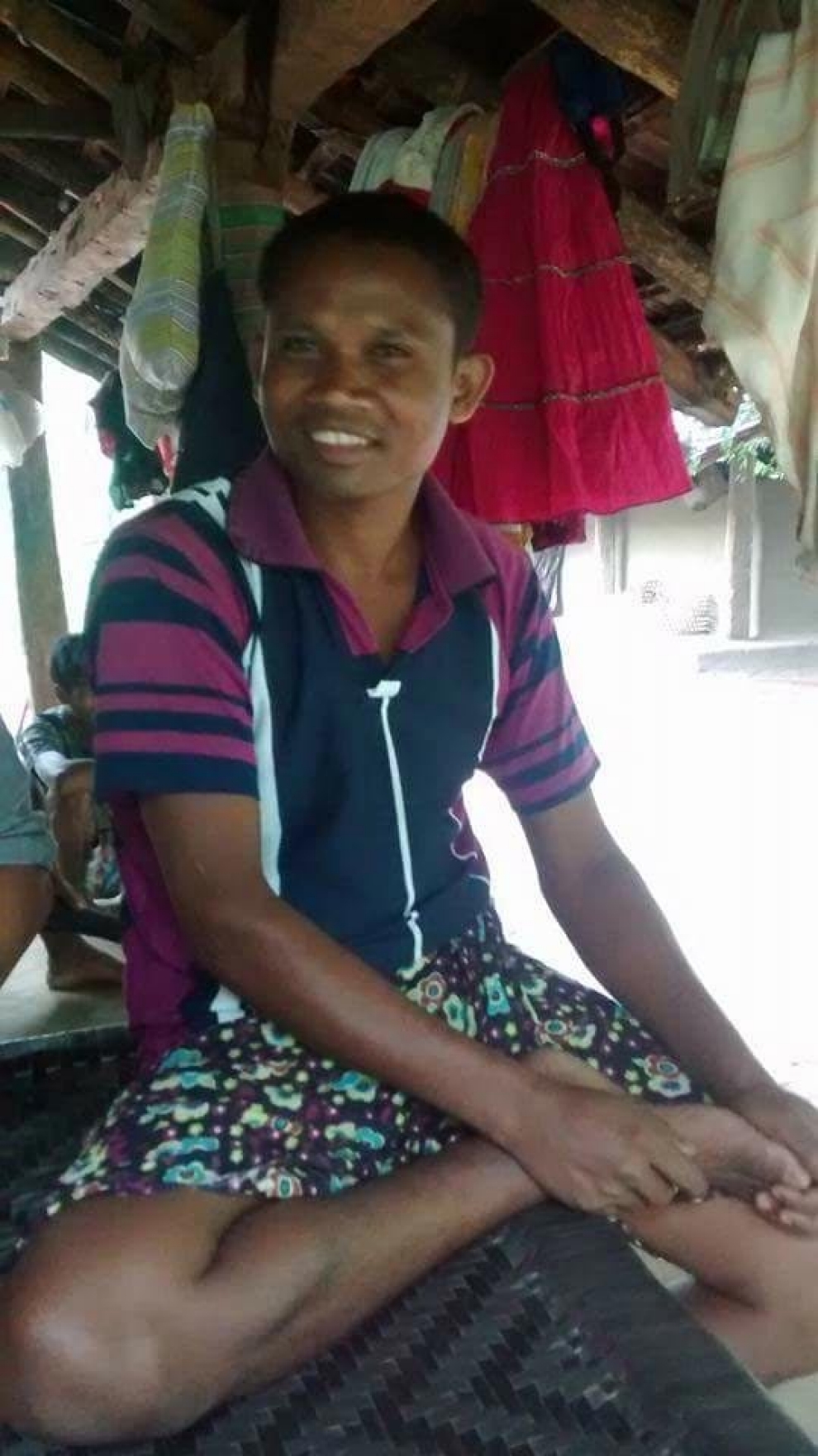In a tough stance against Maoists, police incarcerate people for years, only to release them for lack of evidence
BASTAR DISTRICT, India — Irpa Narayan limps as he walks the jungles around his village, Bellamnendra — an injury from the seven years he spent in jail for suspected anti-state activity before being acquitted. He was forced to sit six hours a day with his knees pressed to his chest in an overcrowded cell of the Jagdalpur Central Jail.
After being jailed for more than five years, he faced trial in 2013. In January 2014, he was finally granted bail. However, the bail required him to deposit 10,000 rupees ($150) in the courts as bond. Since he could not afford that sum, he remained locked up as his case dragged on.
He was acquitted in June 2015 after a judge found no reason for his incarceration.
“I was taken to jail for no reason and kept there for no reason,” said Narayan, 32. “And now I have to start building my life from scratch.”
Experts say his story is shockingly common: More than 96 percent of those arrested from 2005 to 2012 in the five districts of India’s central Bastar district were set free by the trial courts because of lack of evidence, and two-thirds of those arrested spent two to five years in jail before facing trial.
This is according to the Jagdalpur Legal Aid Group, a nonprofit group based in Bastar that filed right to information applications in 2013 to obtain relevant government records.
“In other parts of the country, the police work toward getting evidence so the accused can be convicted. Here the purpose of the arrests is not to get them convicted. Most of the cases are false anyway. It is just to intimidate the local populace,” said Shalini Gera, a lawyer with the group.
Because data from close to four dozen police stations in Bastar region are not digitized, the only way to arrive at the number of people who are arrested is by looking at the number of people who are incarcerated.
According to National Crime Records Bureau figures for 2013, while detention facilities in Chhattisgarh are designed to accommodate 5,850 people, there are 14,780 inmates. This figure includes convicts and people awaiting or under trial.
The facilities in Bastar are overcrowded, at 252 percent to 400 percent of capacity, compared with the national average of 112 percent, according to India’s National Crime Records Bureau.
False arrests
In Chhattisgarh, for more than three decades the government has been fighting a bloody battle with a leftist guerrilla group commonly referred to as Maoists. The mineral-rich areas of the state have attracted large corporations from all over India.
While the government quells all opposition to mining, some Maoists fight to keep industrialization out of the jungles. This battle drives a wedge between those who support the government and those who support the Maoists. These divisions are quiet, however, because if they took sides openly, they would risk the ire of the opposing party.
False arrests are just one tactic used to scare people from speaking out against government policies, according to Alok Shukla, the community organizer for Chhattisgarh Bachao Andolan, a cluster of nonprofit organizations working in the state. “The authorities are trying to ensure that the Maoists get as little support from the local population as possible,” he said.
Most of these cases need not be tried at all, said Gera. The courts reserve the right to dismiss them on the basis of inconsistencies in the first information report and the charge sheet filed by the police. In Narayan’s case, for example, the report, filed in February 2008, indicates he was arrested for possessing a bow and three arrows and being present in the jungles in the midst of a police gunbattle with Maoists. Al Jazeera America has seen the documents, which appear to be hastily handwritten notes.
But Narayan lives in those jungles. And it is common for Adivasis, India’s indigenous people, to use bows and arrows to hunt. Since the report does not say that he was wielding a gun or participating in the battle, the court could have dismissed the case or instructed the police to dig for more evidence before they booked a case.
But “courts won’t risk dismissing cases in these areas, for the fear of being termed pro-Maoist,” said a local lawyer who requested anonymity to avoid possible reprisals. “In other parts of the country, a case such as Narayan’s would hold no water, as it is weak in its details and evidence. In Bastar, such cases are abundant.”
Narayan’s account of that day differs significantly from the police version. He said he was sitting on a cane cot in his hut, sipping black tea when half a dozen paramilitary forces approached him. He said they shot two bullets in the air to scare his neighbors away and then informed him that he was being arrested for “anti-state activities” and being a Maoist supporter.
Indian Prime Minister Narendra Modi visited Bastar in May and witnessed the signing of multimillion-dollar agreements for Ultra Mega Steel Plants and railway lines to aid those plants. According to Shukla, there has been an escalation in such arrests since then, although official figures are not available.
Gera’s phone is constantly busy with calls from all over Bastar from people seeking her help for what they say are false arrests. “We can’t take on all the cases, even though they are equally important,” she said. “We are happy on the days when we get less than half a dozen distress phone calls.”
The local people have been forest dwellers, and the forest is their main source of livelihood. “Locals are with the Maoists in this. We do not want industry that would destroy our livelihoods and render us unemployed,” said a resident of Rowghat, in eastern Bastar, speaking on condition of anonymity because he fears he would be targeted by the government for speaking out.
Bastar’s inspector general has not responded to Al Jazeera America’s questions and interview requests.

NGOs have been pushing for investigations into claims of sexual violence against incarcerated women in India.Jagadeesh NV / EPA / Corbis
Gang-raped by police
There, she said, she was repeatedly gang-raped by policemen before being taken to a judge. She said that she couldn’t muster the courage to tell the judge what the police had done to her and that she was so weak, she could barely stand up.
The judge remanded her to the Jagdalpur Central Jail. For more than seven years, she was kept in a cell that held about 35 inmates. Most of the women there were detained on false charges of being Maoists, the woman, now 24, said.
She spoke to Al Jazeera on condition of anonymity because of the social stigma that rape carries.
She said the brutal rapes damaged her genitals and her intestine. “Yet I had to plead for medical care to be given to me,” she said. Whenever she did, she was taken to a doctor. But her health gradually worsened. She still experiences debilitating pain in her stomach and pelvic region.
“The problem with court proceedings of most of these cases is that the witnesses are all police personnel,” said Gera. In other parts of the country, police are allowed to be witnesses, but their testimonies are given less importance. They are expected to bring in other, objective witnesses to crimes.
Bastar, though, is India’s most militarized region. And in many cases, the only witnesses are the police. The courts are left with little choice.
Two policemen said they witnessed the girl’s criminal activities, according to official police documents. But they didn’t show up in court for her case for more than a year, claiming they were busy with work in other areas of the state or were on leave.
When they finally appeared, they said they had little information regarding her involvement, and they did not have any evidence against her.
The girl was released — acquitted for lack of evidence — in March. Now 24, she said she has only two reasons to be sad: In a country where rape is stigmatized, she believes no one will ever marry her, and she has friends in the jail who are as innocent as she and remain incarcerated.
“I wish I could do something to ensure they return safely,” she said, with tears in her eyes.
Published in: Al Jazeera America
Published on: 7 December, 2015
Link: http://america.aljazeera.com/articles/2015/12/7/bastar-india-where-the-innocent-lose-years-in-prison.html


